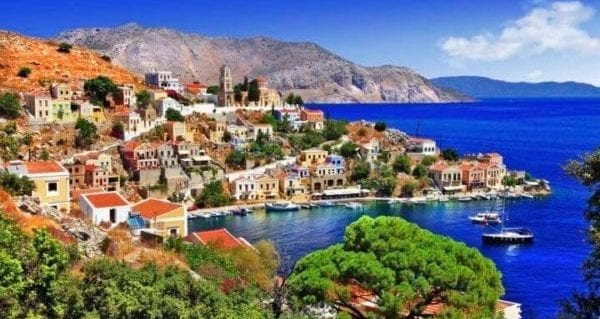 Throughout the ages, Greece has created a significant footprint and an inspiring legacy in the arts and culture.
Throughout the ages, Greece has created a significant footprint and an inspiring legacy in the arts and culture.
Hardly a day goes by when we don’t recognize the foundational endowments to the modern arts and culture made by ancient Greece. Renowned Greek philosophers, architects, sculptors, poets and playwrights have left their mark for future generations.
Familiar names include Plato, Aristotle, Socrates, Herodotus, Sophocles, Euripides, Aeschylus and many, many more. All of them made remarkable contributions over the centuries to the arts and culture and left an indelible imprint through the ages.
As a visiting professor at the International Writers’ and Translators’ Centre of Rhodes in the summer of 2018, I had a unique opportunity to witness firsthand the Greek passion for incubating, nurturing and promoting arts and culture.
The Rhodes centre is a beacon for implementing local cultural policy. It’s under municipal jurisdiction and is administered by a handful of dedicated professionals.
A short list of their annual cultural and artistic events includes the writers’ workshops, music recitals, school outreach programs, book launches and translation workshops.
Rhodes is one of the larger Greek islands, nestled in the Aegean Sea. The capital city, also called Rhodes, is home to the UNESCO world heritage site of the only European medieval city in continuous habitation.
Rhodes is a city where natural beauty, a rich history, a vibrant society and a flourishing cultural scene merge to create a powerful synergy of cultural and artistic expression. There’s no denying that Rhodes has become a role model when it comes to promoting a visionary cultural policy and supporting a vibrant arts and culture community.
At the centre, I interacted daily with a talented and creative international group who are shaping the modern face of arts and culture. This centre is incubating a new wave of significant contributions to arts and culture worldwide.
At the core of the Greek approach to culture is the word philoxenia, which has roots in ancient phraseology. It has no equivalent in western languages.
The literal translation of philoxenia is welcoming of foreigners. But it has a deeper and broader cultural connotation. It embraces an ethos, a concept and a mindset. It denotes a global outreach, a comfort level with diversity and a cultural ethos of embracing universality.
Philoxenia projects a comfort level with engaging the rest of the world, seeking a global context instead of limiting society to its local environment. It’s goodwill towards an international cultural outreach and an incubator for a diversity of perspectives and ideas.
Since the golden age in Greek antiquity, Greece has contributed to a panorama of human endeavours in the arts and culture. Despite wars, natural disasters and economic crises, Greece has never faltered in its mission to support, nurture and promote arts and culture.
Even during the heights of the 2010-2013 economic crisis, the country paid instructors to teach modern Greek studies at some Canadian universities, including my own the University of New Brunswick.
All of this is founded in an unwavering cultural ethos. It’s based on a principle that supporting the arts and culture is not a luxury but an investment in human progress. It’s the necessary scaffolding for building and maintaining civil society. It’s the cornerstone for human progress and development. It’s an investment in the aesthetic development and the progress of civilization and humanity.
It’s a compelling lesson for Canadian municipalities, which should be supporting, nurturing and promoting the arts and culture. These municipalities are key to turning civil society’s cultural aspirations into reality.
But Canadian municipal cultural policies lack the spirit of philoxenia.
Implementing a form of philoxenia will acknowledge that a municipality’s cultural budget is not a frivolous expense but an investment that will deliver cultural dividends in the future.
Canadian municipalities are duty bound to fulfill contemporary society’s hopes and aspirations, support our cultural communities to add a dash of vision and experimentation, and embrace an international and multicultural context.
All of this will allow the arts and culture to flourish, serving as a tribute to the enduring value of civil society’s aesthetic elegance and as a monument to the everlasting glory of contemporary civilization.
Dr. Constantine Passaris is a professor of Economics at the University of New Brunswick. He was a visiting professor at the International Writers and Translators Centre of Rhodes during the summer of 2018.
The views, opinions and positions expressed by columnists and contributors are the author’s alone. They do not inherently or expressly reflect the views, opinions and/or positions of our publication.


